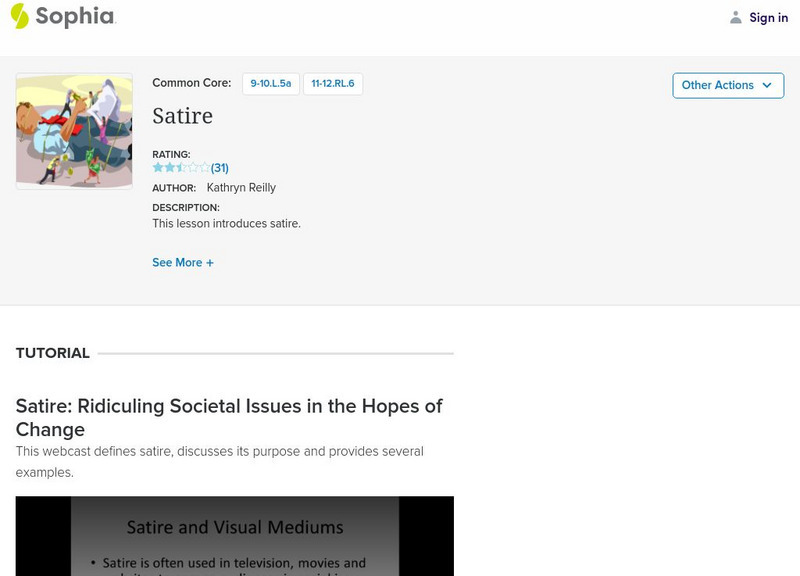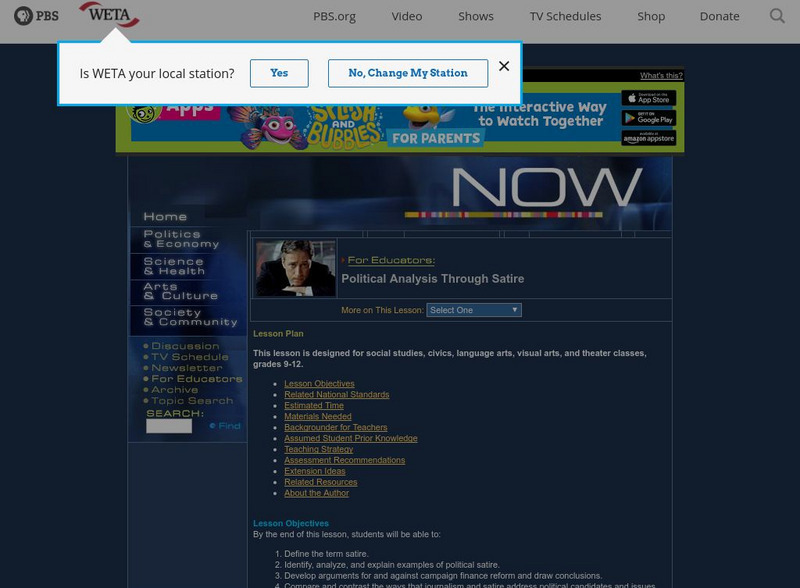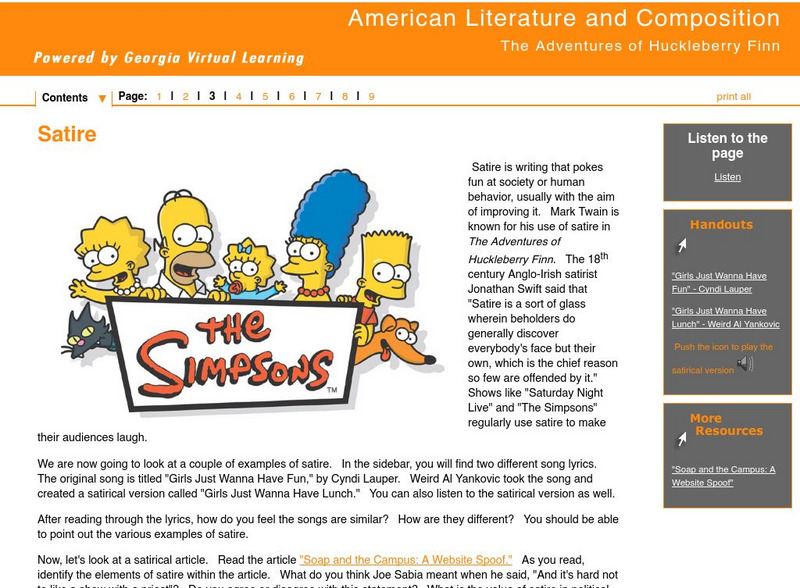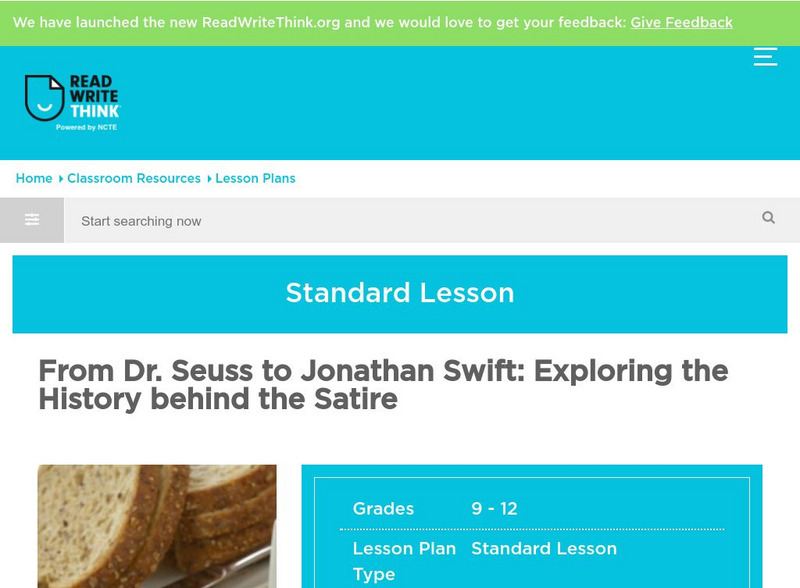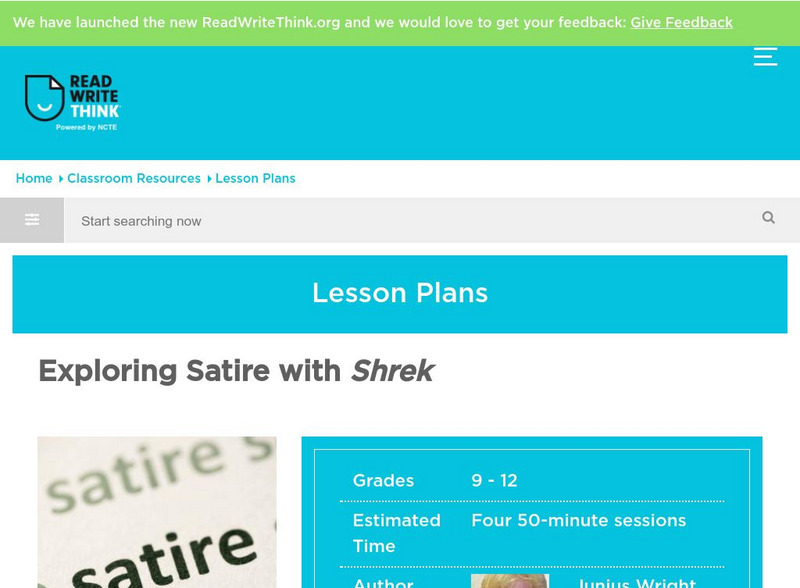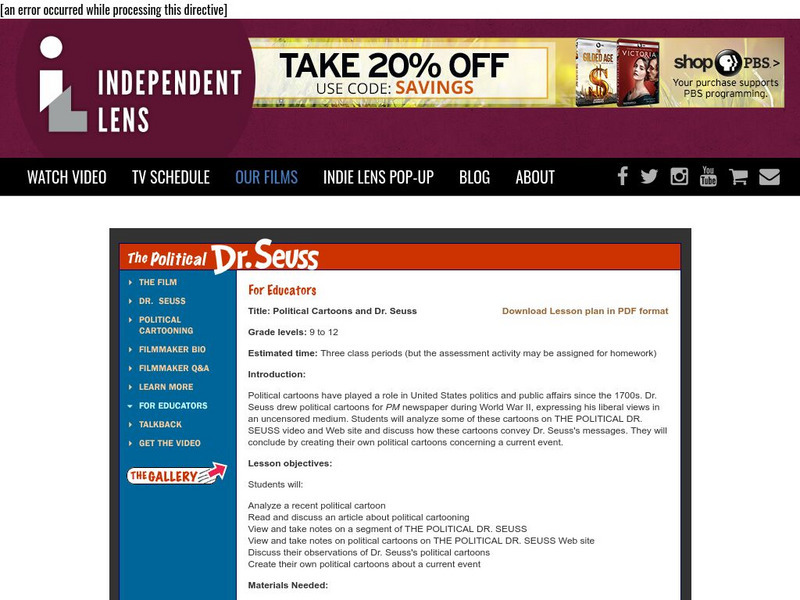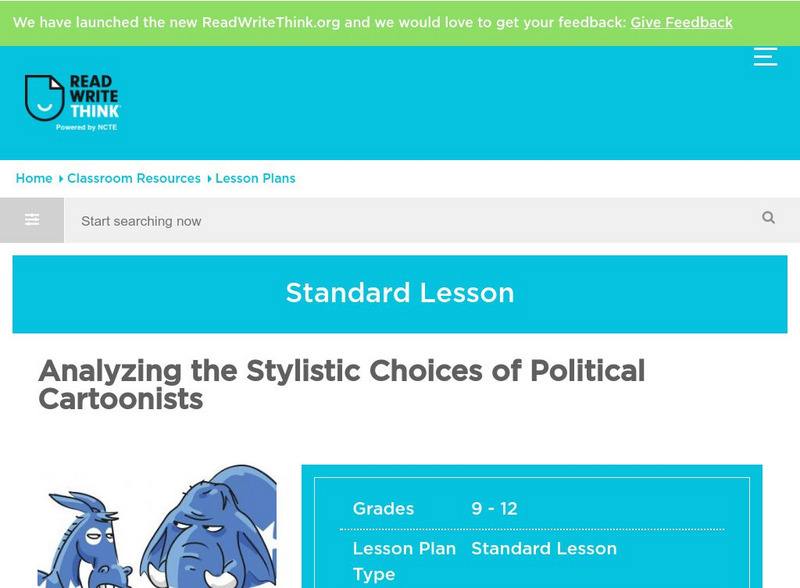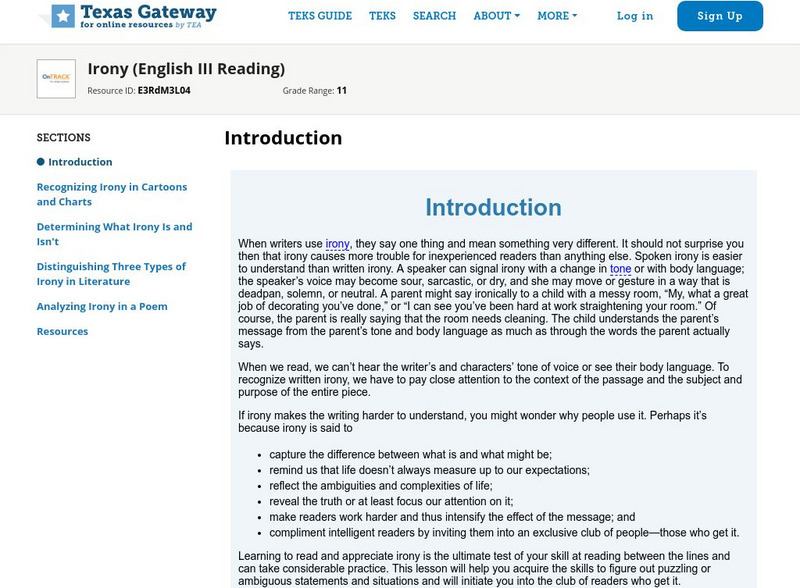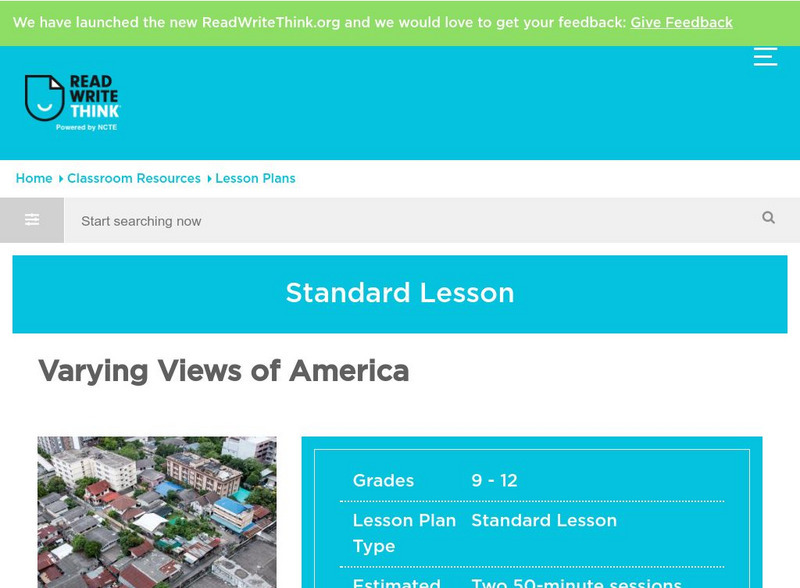Curated OER
Shrek
Students watch the movie Shrek and compose a text that displays an understanding of the film. Also, they create writing that reflects a critical analysis of content and a personal interpretation of the film's meaning.
Curated OER
Nomination Speech
Students research and American author and nominate them for an award. They determine significant accomplishments of their author's career and life. They access the Biography Resource Center and research their author.
Curated OER
The New Statesman (1987-1992)
Students study the work of the House of Commons and consider the importance of debate in the legislative process. They consider why politics is a popular subject for television sitcom and other formats. They explore the four main...
Sophia Learning
Sophia: Satire
This video lesson focuses on satire including its definition, its purpose, how it works, media examples, and literary examples. Real Player is required.
iCivics
I Civics: Mini Lesson B: Satire
Students explore how satirical news stories, like political cartoons, are meant to poke fun, not to trick people. Students learn to spot satire and understand both the joke and the purpose of this news-related genre.
National Humanities Center
National Humanities Center: America in Class: Benjamin Franklin's Satire of Witch Hunting
Lesson uses primary resource to explore Benjamin Franklin's satire of a witch trial and his argument that human affairs should be guided, above all, by reason.
Library of Congress
Loc: Lesson Plans: Political Cartoons: Finding Point of View
Lesson plan on analyzing a political cartoon that satirizes the Stamp Act.
ReadWriteThink
Read Write Think: Exploring Satire With the Simpsons
Contains plans for three lessons that use the popular television show "The Simpsons" to teach about satire and satirical techniques. In addition to objectives and standards, this instructional plan contains links to PDF handouts and...
PBS
Pbs: Political Analysis Through Satire
A lesson that asks students to examine and analyze examples of political satire, then to compare and contrast how journalism and satire address political candidates and issues. The lesson includes instructions for creating political...
Georgia Department of Education
Ga Virtual Learning: American Lit: The Adventures of Huckleberry Finn: Satire
This lesson focuses on satire and parody. Students read the text of Cyndi Lauper's "Girls Just Wanna Have Fun" and its parody "Girls Just Wanna Have Lunch" by Weird Al Yankovic and compare/contrast the two. The audio of Weird Al's...
ReadWriteThink
Read Write Think: From Dr. Seuss to Jonathan Swift
Contains plans for three lessons that use Dr. Seuss?s "The Butter Battle Book" to introduce satire in Jonathan Swift?s "Gulliver?s Travels." In addition to objectives and standards, this instructional plan contains links to PDF handouts...
ReadWriteThink
Read Write Think: Exploring Satire With Shrek
The movie Shrek introduces the satirical techniques of exaggeration, incongruity, reversal, and parody. Students brainstorm fairy tale characteristics, identify satirical techniques, then create their own satirical versions of fairy tales.
Georgia Department of Education
Ga Virtual Learning: Restoration and Eighteenth Century: Jonathan Swift
This lesson focuses on Jonathan Swift and his use of satire and irony. It features links to Swift's biography, "A Voyage to Lilliput" and "A Voyage to Brobdingnag" texts from Gulliver's Travels, and a handout with questions about the...
PBS
Pbs Teachers: The Political Dr. Seuss (Lesson Plans)
Go directly to two lesson plans that help students explore how the cartoons of Dr. Seuss reflected the political and social issues of his day. Lessons also direct students to examine broader issues associated with political cartooning,...
ReadWriteThink
Read Write Think: Analyzing the Stylistic Choices of Political Cartoonists
Contains plans for four to five 50-minute lessons about analyzing political cartoons. In addition to student objectives and standards, these instructional plans contains links to PDF handouts and links to sites used in the lessons as...
Georgia Department of Education
Ga Virtual Learning: Restoration and Eighteenth Century: A Modest Proposal
This lesson focues on "A Modest Proposal" by Jonathan Swift in which he uses strong satire and irony as a protest of the English treatment of the Irish. It features links to the text of "A Modest Proposal," an introduction to the work by...
Texas Education Agency
Texas Gateway: Dramatic Irony (English I Reading)
This lesson focuses on dramatic irony including what it is, it's purpose, examples in various genre, and a practice exercise. RL.11-12.6 Irony/Satire/etc
Texas Education Agency
Texas Gateway: Irony, Sarcasm, and Paradox (English Ii Reading)
[Accessible by TX Educators. Free Registration/Login Required] In this lesson, you will learn to evaluate the role of irony, paradox, and sarcasm in literary nonfiction such as speeches and essays. It includes the definitions and...
Texas Education Agency
Texas Gateway: Irony, Sarcasm, Paradox (English I Reading)
[Accessible by TX Educators. Free Registration/Login Required] In this lesson, students will learn to identify and explain the purposes of irony and paradox in poetry. Both of these poetic devices are ways of saying one thing and meaning...
Texas Education Agency
Texas Gateway: Irony (English Iii Reading)
[Accessible by TX Educators. Free Registration/Login Required] Learning to read and appreciate irony is the ultimate test of your skill at reading between the lines and can take considerable practice. This lesson will help you acquire...
Georgia Department of Education
Ga Virtual Learning:american Lit: The Adventures of Huckleberry Finn: Mark Twain
This lesson focuses on Mark Twain, the pen name of Samuel Longhorn Clemens and author of The Adventures of Huckleberry Finn and The Adventures of Tom Sawyer. It includes links to a Discovery Education video about Mark Twain (Registration...
Georgia Department of Education
Ga Virtual Learning: American Literature and Comp: Modernism: e.e. Cummings
This lesson focuses on e.e. cummings and his poems: "anyone lived in a pretty how town" and "old age sticks." It discusses cumming background, his lack of use of punctuation and capitalization, and his concern for the individual. Links...
ReadWriteThink
Read Write Think: Poetry: Varying Views of America
Lesson allows students to examine the various views of American perspective through studying three poems by diverse poets: "I Hear America Singing" by Walt Whitman, "I, Too, Sing America" by Langston Hughes, and "On the Pulse of Morning"...
Georgia Department of Education
Ga Virtual Learning: American Literature; American Romanticism: Vocabulary
This lesson focuses on defining the literary terms in American Romanticism. It features a list of terms and an interactive crossword puzzle using them.





